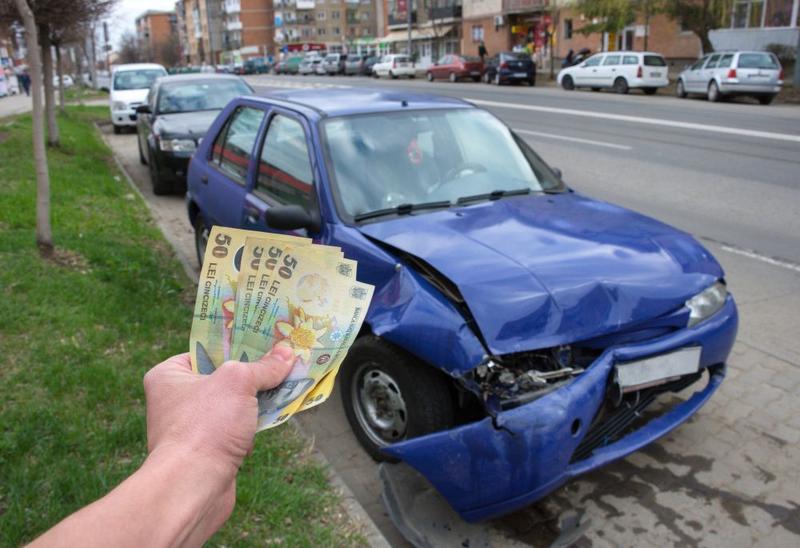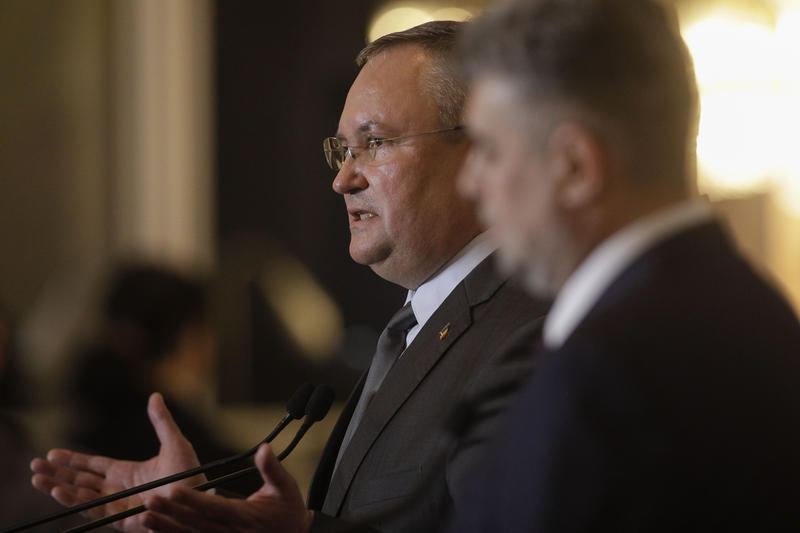Romania will receive the second and third instalments for the loan taken from the international financing institutions. "I'm convinced that the IMF will authorise the instalments after noting the progress recorded in Romania. Half f the money will be used to support the budget. The other half will go to the Romanian National Bank (BNR) for the payments balance", the IMF chief of mission Jeffrey Franks announced on Wednesday morning, January 27, 2010. The European Commission representatives announced that their next instalment for Romania will be delivered in March.
Jeffrey Franks, IMF
- The target for Romania was reached; therefore we will deliver the second and the third instalment.
- In the last 2009 quarter the economic negative evolution dropped significantly.
- It is very important that BNR continued the policies on inflation.
EC representatives
- We're firmly convinced that the multilateral financial assistance combined with the Government's policies had a positive impact on Romania.
- Financial tensions weakened. The economic conditions and perspective are better now.
- It seems that the worst part of the crisis is gone.
- I would say that the programme is on the good path, most of the targets have been met:
- Fiscal targets - last data show that the 7.3% of the GDP deficit target has been met.
- The 2010 budget - it is important that the agreed measures be implemented. We must carry on the effort to allow more handling space for the cut of budget spending.
- Fiscal governance - it is important that the unique salary scheme, the pensions law, the fiscal responsibility law be approved by the Parliament.
- Progress has been made in supervising the financial sector.
- The next missions will evaluate the measures o secure a better value for spent public money and the improvement in European funds absorption.
- The experts' evaluation is positive. We will report this in Brussels and we expect the next instalment to be delivered in March.
Jeffrey Franks
- We couldn't finalise the last evaluation mission, not because of the weak results, but because of the political uncertainty, which prevented the approval of the budget.
- I consider the 5.9% deficit target for 2010 feasible.
- 2009 has been an extremely difficult year. The economic growth has been less negative towards the end of the year.
- Indicators show that it is only now when a positive growth might be possible, in the first months of 2010.
- Financial markets: (...) it will take some time until capital fluxes will be felt in the economy. We have to admit that there are risks.
- It is important that BNR be very prudent in targeting inflation with its policies and instruments.
- The inflation target was 4.5% +/- 1 point. Even if the target was missed, the objective wasn't.
- At the end of 2009 the deficit target was met.
- The Government lowered spending; we continue to (...) keep public spending under control to leave more room for investments.
- If we look at structural reforms, we has some very ambitious projects - suggested by the Romanian Government. There have been some minor delays.
- We agreed to revise the schedule for the Government. We expect the fiscal responsibility law to be approved in the months to follow.
- It was a difficult year for the financial sector. The Romanian banking sector managed the pressures well.
- We'll try to get the Fiscal responsibility law approved by end of March and the Pensions law by the end of June. We expect a new version of the law to be presented to the Parliament in the following weeks.
- Some state enterprises are profitable; others have huge debts which make an impact on the entire economy. We talked with authorities and identified ten such enterprises recording difficulties. We will set some targets. Legislative changes have been approved already in order for the government to monitor these enterprises more closely.
- The problem was that high increases in salaries were being negotiated before the budget was approved. We want to completely reverse this process and force managers improve the financial situation.
- As for people employed by the state - the Unique salary scheme features a restriction addressing the income's quantity in the public sector and GDP %. The percentage was reduced.
- One of the disturbing factors in the current crisis was the level of economic endurance. In time, it will get from 9% of the GDP to 7%, to the level recorded 5 years ago. One way is to cut salaries; another is to reduce the number of employees. We can thing of freezing he salaries in 2010 on one hand. On the other, the number of staff can be reduced. We let he Government decide. This will not be imposed but the financial institutions. We agreed to a lower GDP percentage for state salaries.
- State employees' salaries are paid from your contributions. We must balance the need to have an efficient sector.
- Romania can afford a Dacia sort of public sector, not Mercedes. It is nothing wrong with Dacia, it is an efficient choice.
- It is very true that if the salary increases are low, the power to buy will not recover soon. We expect a limited increase of the inner demand.
- The growth in Romania will be based on exports, not on consumption.
- You need to return to a sustainable current account deficit.
European Commission
- The Government has a choice in managing this mix of policies.
- Some measures have been already taken for the business environment to facilitate the set-up of new companies.
- Romanians need to send to the EC a convergence programme. In this sense, it will name a method to correct the excessive deficit.
- Bearing in mind the worsening of the economic conditions, we take into consideration the possibility of giving Romania more time to correct the deficit, but this will be discussed in the Commission and ECOFIN will decide in this sense.



















